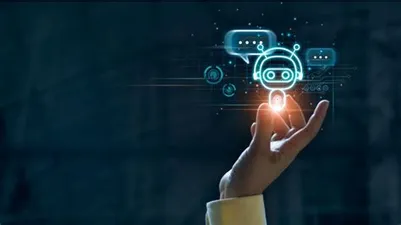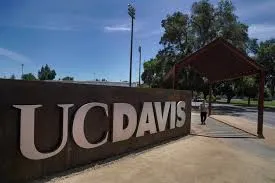The entire world of education is almost going haywire. There is something called ChatGPT. So you have a conversational open artificial intelligence chatbot which can answer every question that you ask. It can give an answer to a question that would normally come in an examination. Even at times, it writes songs and poems for you. The fear that has come is that professors and teachers will go out of business. After all, you can get any answer just through an OpenAI app.
Let me come out with another point. Quora is coming out with another platform called POE, which is a chatbot aggregator. So 11 to 12 AI chatbots will be brought together, including chatGPT, where a question can be asked and multiple interpretations of the same question can be given by using multiple chatbots. So you had one answer and now you have possibly five answers coming out through the use of AI. So you have choices to make. Does it mean universities will go out of circulation?
Sometime earlier, six of world’s largest companies, decidedlytech companies and that include Facebook, Google, Amazon and IBM, have come out with this whole thing that they would be recruiting people on competencies and not degrees. And their argument is a BTech degree of Sierra Leone may not be comparable with Pennsylvania or with Delhi. And even within a country for example, a BTech degree from an unknown university in Sagar or Gorakhpur may not be comparable with the same degree title from IIT Kharagpur in India, in the same country. So what is the point of looking at people or CVs with a degree?
Does it mean that degree centrality of universities is facing a big crisis? Yes and no. There is a crisis. The universities are known as they offer legal degrees.
If the centrality of degrees in employability and entrepreneurship does not remain, except maybe the government jobs which do not account for even 10% of the total employability in a country anywhere, then what is the point of universities offering degrees?
The issue now would be that universities have to redefine themselves in the times where degree centrality does not remain and in the times where AI chatbots can answer questions.
Let me point out a few things. One, chatbot is giving me one answer to the question I am asking, but is the answer totally right? Are all facts correct? Is the analysis, the right analysis that I would like to give? Do I have a frame of reference to understand the conclusions drawn in the chatGPT generated response? Now these will require me to be beyond just copy-pasting a chatGPT note. That is where education will come in. And education, training, learning, these were different terms in the earlier times. Post pandemic they are coming closer.
So while people educated had a mindset about people who are trained considering that training is about technical skills alone and not interpretative, are up for a complete surprise. And on the other hand, a technical hand not knowing how to do it and without knowing why to do it would not even survive.
So to understand anything, why to do it, first answer what to do. That chatGPT can tell. But for answers to why to do it and how to do it would require a human intelligence to understand that. Low key jobs, low key skills will be taken over by automation, surely by artificial intelligence. It is already in the process. There are several jobs, perhaps more than 60% of all jobs which are low skilled. They may go out of the hands of the human beings.
However, to create the first template, to create the first sample, to create the first design still you will need a human mind, a human genius with a design thinking mind. Can the universities tap into that?
Today universities are actually training people in repetitive jobs, in things which are very easily replicable and hence the skills that they bring in need not be futuristic. But can we look at futuristic skills, problem solving, creative skills and at innovation? If innovation is going beyond doing the current thing nicely, it is not real innovation. Machine can do it even better. Innovation is disruptive, doing the same thing with a different set of resources, different timeline, different amount of money and with a different approach. The universities which are looking to mentor learners in analysis, application, customization, ideas which are disruptive still have some role to play.
Unfortunately, our mass education through which we educate a large number of people at the same time, cannot get into individual one on one mentoring. But times have come when teaching is dead, long live the mentor; and student is dead, long live active learning. So this passive learning must die that we have been seeing, we have been doing ourselves at times, and teaching like a sage from the stage, unilaterally with the power point. The the death knell has been sounded for these form of learning.
So we are moving to LMS (learning management system) driven blended education, which seamlessly blends what we learn individually at our own time, at our own place, at our own pace and then what I, with what we learn digitally live or physically live. Then what we learn experientially by doing is also seamlessly integrated in such a learning and evaluating, and not merely upholding mugged up knowledge. That sort of an education will still survive and flourish.
So can we have a university that looks at flipped class learning that looks at blended learning, which looks at multi assessment and not just exam based written assessment, which looks at comprehensive excellence, not just academic knowledge, but leadership skills as well, understanding of digital technologies and making use of that as well? Can we think of a literature evaluation which does not need to make the person only write, but also enact an act of the novel or recite a part of the poetry or perhaps make a model or talk about it? Now we have always written essays on them, what I am asking is can we write, can we create models out of that, charts out of that, express that in a dramatic form, express that in a poetic form? Now when we can do this creatively, we actually develop a faculty of the mind beyond just information, and that is what AI cannot do still.
So I would request all educationists, cease to be educationists, become education enablers. Educational enablers do not give the answers, do not necessarily tell what is right and wrong, they tell these are the options possible, these are the ways and means you can think of, what you finally think of is your concern. During the European Renaissance, Italian scholar Carlyle had told, ‘Ask people to think, do not tell what to think’. This is the time we have come where we should not be telling formula or processes, let people discover and hence structured learning of the universities should gradually evolve into deep dive organic learning, which has to be self-discovery.
Unfortunately we have made it a mass dictated education and not a self-discovery learning. In the ultimate analysis, technology is great, it is great to have modern fourth industrial revolution new technologies, and emerging technologies including artificial intelligence, machine learning and all that. But finally technology is a great slave but a disastrous master.
So make use of technology, make it an enabler not your ruler, do not outsource your faculty your intelligence to technology, let it help you rediscover things, innovate things and invent things.
Prof Ujjwal K Chowdhury is Executive Director of Dubai-based International Online University.























